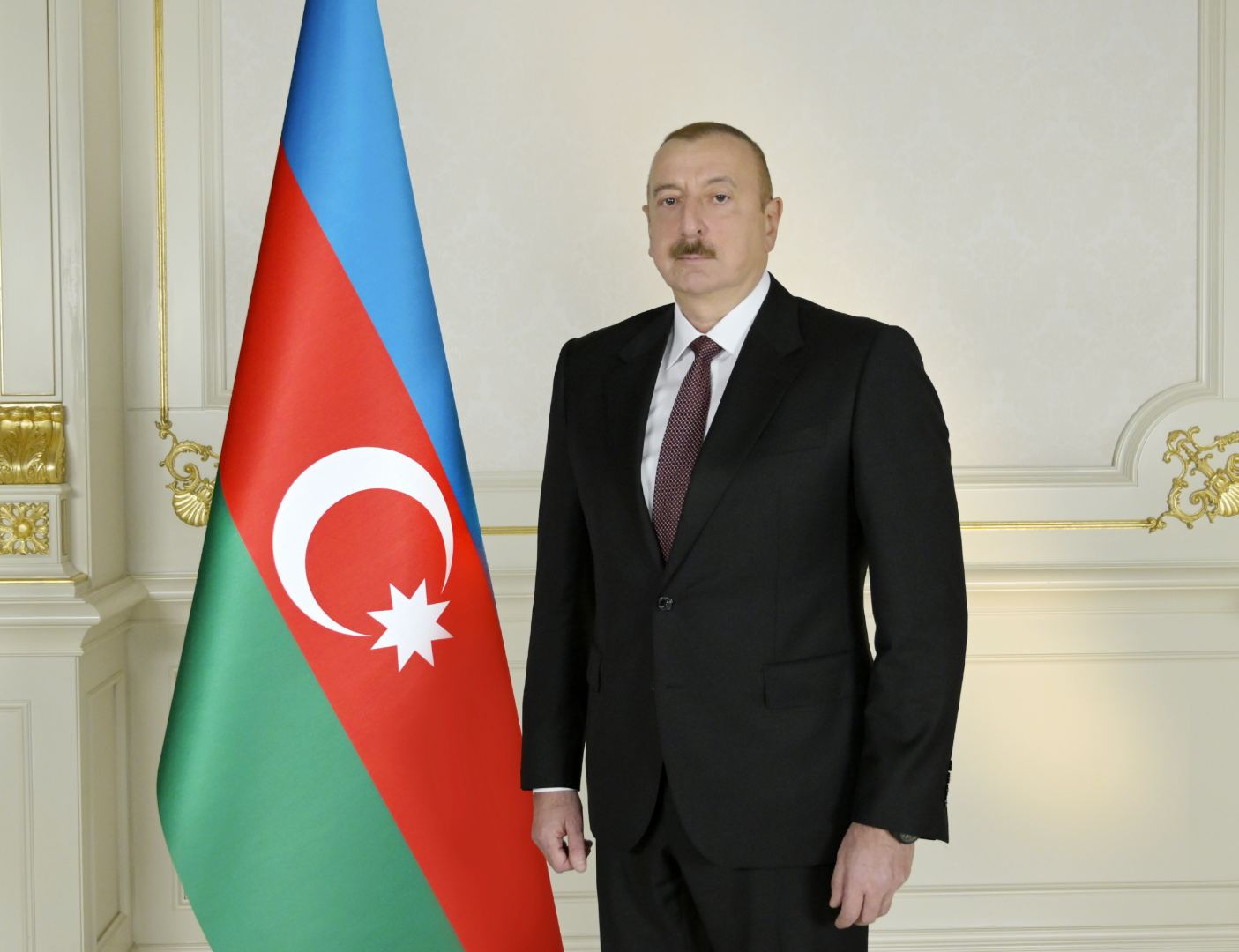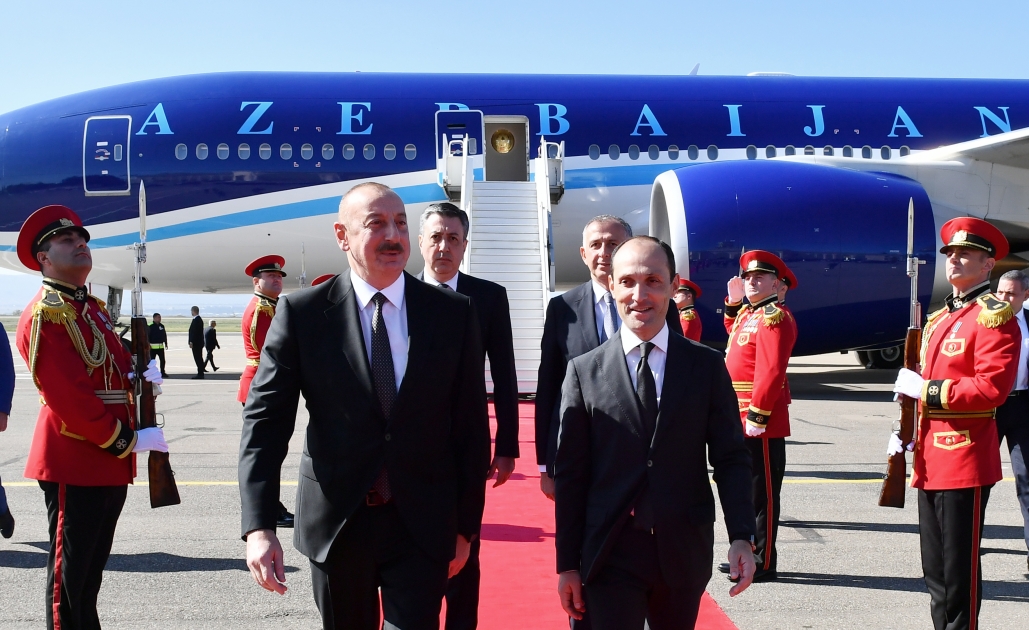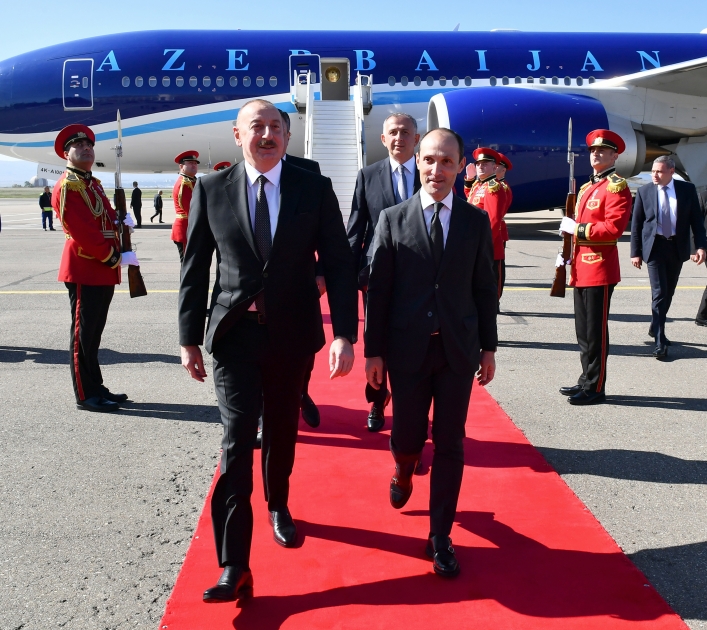AP — Israel has quietly helped fuel Azerbaijan’s campaign to recapture Nagorno-Karabakh, supplying powerful weapons to Azerbaijan ahead of its lightning offensive last month that brought the ethnic Armenian enclave back under its control, officials and experts say.
Just weeks before Azerbaijan launched its 24-hour assault on September 19, Azerbaijani military cargo planes repeatedly flew between a southern Israeli airbase and an airfield near Nagorno-Karabakh, according to flight tracking data and Armenian diplomats, even as Western governments were urging peace talks.
The flights rattled Armenian officials in Yerevan, long wary of the strategic alliance between Israel and Azerbaijan, and shined a light on Israel’s national interests in the restive region south of the Caucasus Mountains.
“For us, it is a major concern that Israeli weapons have been firing at our people,” Arman Akopian, Armenia’s ambassador to Israel, told The Associated Press. In a flurry of diplomatic exchanges, Akopian said he expressed alarm to Israeli politicians and lawmakers in recent weeks over Israeli weapons shipments.
“I don’t see why Israel should not be in the position to express at least some concern about the fate of people being expelled from their homeland,” he told AP.
Get The Times of Israel’s Daily Edition
by email and never miss our top stories
By signing up, you agree to the
terms
Azerbaijan’s September blitz involving heavy artillery, rocket launchers and drones — largely supplied by Israel and Turkey, according to experts — forced Armenian separatist authorities to lay down their weapons and sit down for talks on the future of the separatist region.

Ethnic Armenians from Nagorno-Karabakh travel on a truck on their way to Kornidzor, Armenia, on September 26, 2023. (Stepan Poghosyan, Photolure photo via AP, File)
The Azerbaijani offensive killed over 200 Armenians in the enclave, the vast majority of them fighters, and some 200 Azerbaijani troops, according to officials.
There are ramifications beyond the volatile enclave of 4,400 square kilometers (1,700 square miles). The fighting prompted over 100,000 people — more than 80 percent of the enclave’s ethnic Armenian residents — to flee in the last two weeks. Azerbaijan has pledged to respect the rights of ethnic Armenians. Armenia calls the exodus a form of ethnic cleansing.
Israel’s foreign and defense ministries declined to comment on the use of Israeli weapons in Nagorno-Karabakh or on Armenian concerns about its military partnership with Azerbaijan. In July, Defense Minister Yoav Gallant visited Baku, the Azerbaijan capital, where he praised the countries’ military cooperation and joint “fight against terrorism.”
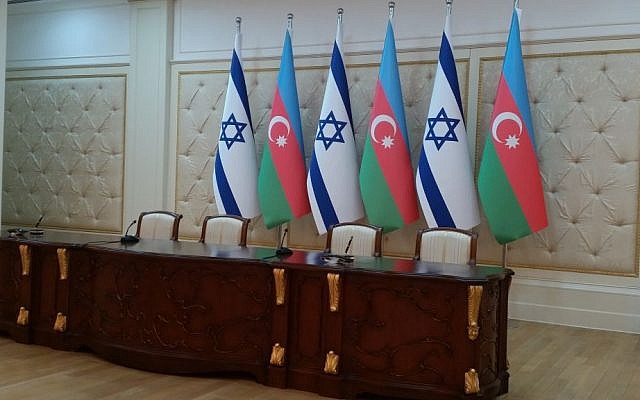
The flags of Israel and Azerbaijan in Baku’s presidential Zagulba Palace, right before Prime Minister Benjamin Netanyahu met with Azeri President Ilham Aliyev, December 13, 2016. (Raphael Ahren/Times of Israel)
Israel has a big stake in Azerbaijan, which serves as a critical source of oil and is a staunch ally against Israel’s arch-enemy Iran. It is also a lucrative customer of sophisticated arms.
“There’s no doubt about our position in support of Azerbaijan’s defense,” said Israel’s former ambassador to Azerbaijan, Arkady Milman. “We have a strategic partnership to contain Iran.”
Although once resource-poor Israel now has plenty of natural gas off its Mediterranean coast, Azerbaijan still supplies at least 40% of Israel’s oil needs, keeping cars and trucks on its roads. Israel turned to Baku’s offshore deposits in the late 1990s, creating an oil pipeline through the Turkish transport hub of Ceyan that isolated Iran, which at the time capitalized on oil flowing through its pipelines from Kazakhstan to world markets.
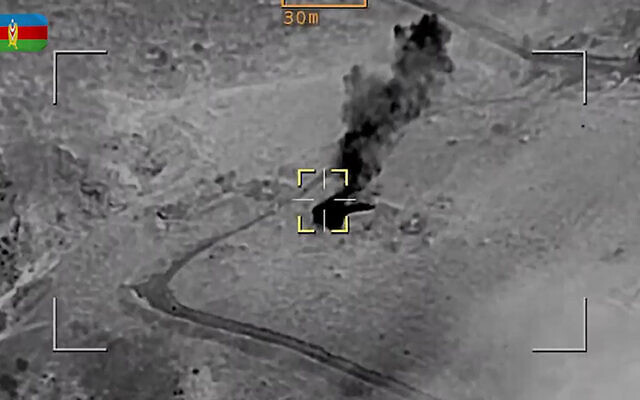
In this photo taken from video released by the Defense Ministry of Azerbaijan on September 20, 2023, smoke rises over an area that Azerbaijan says hosts Armenian forces’ positions in the territory of Nagorno-Karabakh. (Defense Ministry of Azerbaijan via AP)
Azerbaijan has long been suspicious of Iran, its fellow Shiite Muslim neighbor on the Caspian Sea, and chafed at its support for Armenia, which is Orthodox Christian. Iran has accused Azerbaijan of hosting a base for Israeli intelligence operations against it — a claim that Azerbaijan and Israel deny.
“It’s clear to us that Israel has an interest in keeping a military presence in Azerbaijan, using its territory to observe Iran,” Armenian diplomat Tigran Balayan said.
Few have benefited more from the two countries’ close relations than Israeli military contractors. Experts estimate Israel supplied Azerbaijan with nearly 70% of its arsenal between 2016 and 2020 — giving Azerbaijan an edge against Armenia and boosting Israel’s large defense industry.
“Israeli arms have played a very significant role in allowing the Azerbaijani army to reach its objectives,” said Pieter Wezeman, senior researcher at the Stockholm International Peace Research Institute, which tracks arms sales.
Israeli long-range missiles and exploding drones known as loitering munitions have made up for Azerbaijan’s small air force, Wezeman said, even at times striking deep within Armenia itself. Meanwhile, Israeli Barak-8 surface-to-air missiles have protected Azerbaijan’s airspace in shooting down missiles and drones, he added.
Just ahead of last month’s offensive, the Azerbaijani defense ministry announced the army conducted a missile test of Barak-8. Its developer, Israel Aerospace Industries, declined to comment on Azerbaijan’s use of its air defense system and combat drones.
But Azerbaijan has raved about the success of Israeli drones in slicing through the Armenian defenses and tipping the balance in the bloody six-week war in 2020.
Its defense minister in 2016 called a combat drone manufactured by Israel’s Aeronautics Group “a nightmare for the Armenian army,” which backed the region’s separatists during Azerbaijan’s conflict with Nagorno-Karabakh that year.

Defense Minister Yoav Gallant (right) shakes hands with Azerbaijan’s President Ilham Aliyev in Baku, Azerbaijan, July 13, 2023. (Ariel Hermoni/IMoD)
President Ilham Aliyev in 2021 — a year of deadly Azerbaijan-Armenian border clashes — was captured on camera smiling as he stroked the small Israeli suicide drone “Harop” during an arms showcase.
Israel has deployed similar suicide drones during deadly army raids against Palestinian jihadists in the West Bank.
“We’re glad for this cooperation, it was quite supportive and quite beneficial for defense,” Azerbaijani’s ambassador to Israel, Mukhtar Mammadov told the AP, speaking generally about Israel’s support for the Azerbaijani military. “We’re not hiding it.”
At a crucial moment in early September — as diplomats scrambled to avert an escalation — flight tracking data shows that Azerbaijani cargo planes began to stream into Ovda, a military base in southern Israel with a 3,000-meter-long airstrip, known as the only airport in Israel that handles the export of explosives.
The AP identified at least six flights operated by Azerbaijan’s Silk Way Airlines landing at Ovda airport between September 1 and September 17 from Baku, according to aviation-tracking website FlightRadar24.com. Azerbaijan launched its offensive two days later.
During those six days, the Russian-made Ilyushin Il-76 military transport lingered on Ovda’s tarmac for several hours before departing for either Baku or Ganja, the country’s second-largest city, just north of Nagorno-Karabakh.
In March, an investigation by the Haaretz newspaper said it had counted 92 Azerbaijani military cargo flights to Ovda airport between 2016 and 2020. Sudden surges of flights coincided with upticks of fighting in Nagorno-Karabakh, it found.
“During the 2020 war, we saw flights every other day and now, again, we see this intensity of flights leading up to the current conflict,” said Akopian, the Armenian ambassador. “It is clear to us what’s happening.”
Israel’s Defense Ministry declined to comment on the flights. The Azerbaijani ambassador, Mammadov, said he was aware of the reports but declined to comment.
The decision to support an autocratic government against an ethnic and religious minority has fueled a debate in Israel about the country’s permissive arms export policies. Of the top 10 arms manufacturers globally, only Israel and Russia lack legal restrictions on weapons exports based on human rights concerns.
“If anyone can identify with [Nagorno-Karabakh] Armenians’ continuing fear of ethnic cleansing it is the Jewish people,” said Avidan Freedman, founder of the Israeli advocacy group Yanshoof, which seeks to stop Israeli arms sales to human rights violators. “We’re not interested in becoming accomplices.”
Times of Israel staff contributed to this report.


